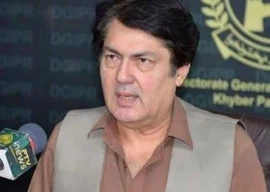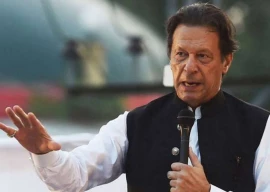
While expressing concern at the apathy of the government towards the rising tide of religious extremism and sectarian violence in the country, participants of a roundtable on Thursday called for a proactive role of judiciary and law enforcers (LEA) to improve the situation.
The select gathering of intellectuals, legal experts, security analysts, media persons, academics and civil society activists exhorted the progressive, liberal and secular forces to rise to the occasion and launch a unified struggle against the obscurantism, sectarianism and retrogressive forces, who are hell bent on destroying the social fabric of the society.
They also questioned the role of establishment and security agencies and their complicity in unleashing sectarian violence in various parts of the country, especially in Quetta, Karachi and Gilgit-Baltistan.
“The state is threatened by those who commit violence and murder in the name of religion,” said Maulana Tahir Ashrafi of the All Pakistan Ulema Council at the roundtable titled “Reversing the Tide of Sectarian Violence in Pakistan”, organised by the Jinnah Institute.
He distributed copies of a compilation of edicts by Pakistan’s leading religious schools condemning and declaring the murder of unarmed civilians of any sect or religion un-Islamic. He urged the organs of the state to clamp down on the activities, particularly the fundraising efforts of banned outfits.
Imtiaz Gul, a security analyst, said that Shia killings threaten the very foundations of Pakistan. But, he said, the political and state actors seem more concerned about political mileage than curbing the wanton killings.
He claimed that there is a radical mindset within the judiciary and bureaucracy that provides protection and patronage to extremist outfits. He cited examples of land allocated for greenbelts in Islamabad being handed over to seminaries and mosques. He said that until we are able to end the culture of protecting and patronising the groups involved in spreading sectarian hatred, we will not be able to end the growing faith-based violence in Pakistan.
Dr Ayesha Siddiqa urged for the empowerment of law enforcement agencies so that they could take on powerful and armed groups responsible for sectarian violence. She also said that civil society in Pakistan needs to engage with Islamic jurisprudence and discourse and find inherent messages of peace and pluralism in order to change public mindset on the issue of sectarianism, violence, terrorism and militancy.
Fawwad Chaudhry, Adviser to the Prime Minister on Human Rights, acknowledged that an atmosphere of fear exists in society and in the public due to the recent violent events.
Tahira Abdullah, human rights activist, noted that it is not just fear but also the lack of unity amongst civil society that prevents them from coming together as one cohesive unit capable of demanding change.
Justice (retd) Ali Nawaz Chohan said that while judges do operate in an environment of fear and with minimum resources, writing judgments in accordance with the law is their duty. He said he had authored two judgments in favour of people incorrectly accused of blasphemy without any harm to him, his family or property. He said the judgments are now a part of Pakistani case law. He urged the present judicial leadership to refer to them for context.
Farman Ali, City Editor at The Express Tribune, said that the judiciary needs to play a more active role in clamping down on and punishing extremist and sectarian outfits operating with impunity across the country and even in the federal capital. He also referred to the economic underpinnings of violence in Gilgit-Baltistan and elsewhere and called for a review of state policy in this arena.
Nadir Hassan, columnist, noted that sectarian violence has been treated as a law and order issue for too long while it is one of political identity: growing sectarian violence in Pakistan stems from increasing political schisms between groups for control of land and resources as well as identity.
Dr Farzana Bari, an academic-activist, said that growing intolerance and violence towards minorities stems from an increasingly biased and sectarian discourse being pedalled in society that needs to change.
Raza Rumi, Director Policy at Jinnah Institute, concluded by saying that a short-to medium term set of recommendations will be made to the government and civil society actors. In the short term, focus on state capacity for law enforcement and de-radicalization is required and in the medium to long term Pakistan has to move towards a plural, inclusive state as envisioned by Jinnah. In the meantime, Shia killings had to be stopped through stern state action.
Published in The Express Tribune, August 31st, 2012.
1725612926-0/Tribune-Pic-(8)1725612926-0-405x300.webp)




1725254039-0/Untitled-design-(24)1725254039-0-270x192.webp)
1732189200-0/Express-Tribune-(13)1732189200-0-270x192.webp)



1732186994-0/Untitled-design-(10)1732186994-0-270x192.webp)






COMMENTS
Comments are moderated and generally will be posted if they are on-topic and not abusive.
For more information, please see our Comments FAQ